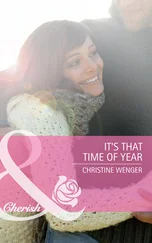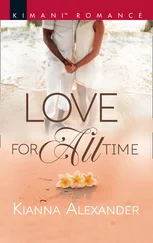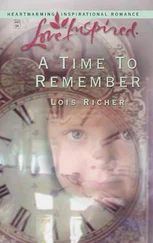Alexander Todd - A Time to Remember
Здесь есть возможность читать онлайн «Alexander Todd - A Time to Remember» весь текст электронной книги совершенно бесплатно (целиком полную версию без сокращений). В некоторых случаях можно слушать аудио, скачать через торрент в формате fb2 и присутствует краткое содержание. Город: Cambridge, Год выпуска: 1983, ISBN: 1983, Издательство: Cambridge University Press, Жанр: Химия, Биографии и Мемуары, на английском языке. Описание произведения, (предисловие) а так же отзывы посетителей доступны на портале библиотеки ЛибКат.
- Название:A Time to Remember
- Автор:
- Издательство:Cambridge University Press
- Жанр:
- Год:1983
- Город:Cambridge
- ISBN:0 521 25593 7
- Рейтинг книги:3 / 5. Голосов: 1
-
Избранное:Добавить в избранное
- Отзывы:
-
Ваша оценка:
- 60
- 1
- 2
- 3
- 4
- 5
A Time to Remember: краткое содержание, описание и аннотация
Предлагаем к чтению аннотацию, описание, краткое содержание или предисловие (зависит от того, что написал сам автор книги «A Time to Remember»). Если вы не нашли необходимую информацию о книге — напишите в комментариях, мы постараемся отыскать её.
A Time to Remember — читать онлайн бесплатно полную книгу (весь текст) целиком
Ниже представлен текст книги, разбитый по страницам. Система сохранения места последней прочитанной страницы, позволяет с удобством читать онлайн бесплатно книгу «A Time to Remember», без необходимости каждый раз заново искать на чём Вы остановились. Поставьте закладку, и сможете в любой момент перейти на страницу, на которой закончили чтение.
Интервал:
Закладка:
In the summer of 1947 I had a visit from an old friend, Joe Koepfli, whom I had not seen since our stay in Pasadena in 1938. He was in London for a spell as scientific counsellor at the U.S. Embassy, and he introduced me to Earl Evans, one of the two professors of biochemistry at the University of Chicago who was going to follow Koepfli in the London position during sabbatical leave from Chicago in 1948-9. The possibility that I might spend a term as a visiting professor at Chicago during his absence was raised by Evans, and, in due course, I was invited to spend the autumn term 1948 as professor of biochemistry in Chicago. The idea of visiting the United States again and renewing contacts was very attractive, so I accepted. I hoped that Alison would be able to accompany me, but having three young children who couldn't come with us was a bit of a complication. However, we managed to find a suitable temporary housekeeper to look after things in Cambridge for part of the term at least, so that I was able to go on ahead, and Alison joined me in Chicago at about the end of October. I had recently become chairman of the Chemical Board of the Scientific Advisory Council of the Ministry of Supply, and I felt it would be a good thing to visit the corresponding American organisation with which we had become closely associated during the war. Accordingly, I travelled to Washington in mid-September 1948 with Dr Fred Wilkins (then Controller of Chemical Defence at the Ministry of Supply and later to follow Sir Harry Jephcott as chairman of Glaxo Laboratories Ltd), and attended various meetings with our American colleagues there and in Baltimore. I regret to say that my only vivid recollection of these meetings is one of a dinner in Baltimore given by senior military and naval staff. As is not uncommon at such events, the bourbon flowed freely before we got as far as the dinner table, where, to my astonishment, I watched a high-ranking officer sitting opposite me solemnly add sugar and cream to his consomme. This remarkable mixture he consumed during the remainder of his meal, giving no indication that it appeared to him to be in any way different from the coffee which his colleagues were drinking!
At the end of the month I proceeded in gentlemanly fashion from Washington to Chicago by the Baltimore and Ohio railroad; it really was quite a delight to travel at a leisurely pace up through the Cumberland Gap and on to Chicago. There I was met by Crawford Failey, the second professor of biochemistry who was to be my colleague for a term, and we drove off to the University Graduate Club on 59th Street, where I was to live during my stay. I remember that drive well. For one thing we went south on the lakeside driveway at a furious speed three abreast and driving almost bumper to bumper, in a (to me, at least!) most alarming way. Secondly, the first instruction given me by Crawford as we drove along was that I should avoid walking on the Midway (an open space with grass and trees close to the university buildings) after dark, and that, if I did have to do so, I should carry ten dollars with me. He told me that this was important, since I would probably be held up; if I had less than ten dollars I would be beaten up, while if I had more it would be a sheer waste of money! So it seemed there was something in the legends of Chicago after all. To be fair, however, I must say that I never encountered any unpleasantness while I stayed in Chicago, even although there were areas near the university with very dubious reputations, and a number of nasty incidents were reported there during my stay. What did rather surprise me was the indifference displayed by most people I met to violent crime; it seemed to be accepted as part of everyday life.
I liked Chicago. It was an exciting, lively city and Alison and I made many friends - Crawford and Christine Failey, and Phillip Miller, professor of medicine and his wife Florence, together with my organic chemical counterpart, Morris Kharasch and his wife Ethel May - all of whom were particularly kind - and we saw a lot of them. In the month or so before Alison arrived I must have been very busy for, apart from my two lectures each week in biochemistry, I managed to fit in a couple of trips to New York, a visit to the University of Illinois, and a week at Notre Dame University giving the Nieuwland Lectures. When in Chicago, there was always billiards after lunch at the Graduate. Club with Morris Kharasch and Warren Johnson. On Wednesday evenings Morris used to have a seminar, and it always concluded with a challenge match at bridge - Morris and myself versus any two graduate students who would take us on. Morris used to say that he and I made a perfect bridge partnership. As a theorist accustomed to making ingenious theories with very little evidence, he felt he should control the bidding; I, on the other hand, being an expert in doing successful experiments with very little material, was the ideal person to play the hands. Whether that view was valid or not, he and I usually won, consuming a good deal of his favourite tipple, Southern Comfort, while we were doing so. The biochemistry department was a good place to work in, and in addition to Crawford Failey, who was much tied up in administration, we had Frank Westheimer and Konrad Bloch, both of whom later went to Harvard, and who have been fast friends of mine ever since the Chicago days. I also got to know Robert Mulliken quite well, although his theoretical interests were rather far removed from my own. The University of Chicago was a lively place in those days, and I liked Hutchins who was then President. Particularly during my bachelor existence in the first half of my stay, I got around quite a bit in the university and in the city of Chicago. I particularly recall how on Sundays (the Graduate Club having no breakfast or luncheon facilities) I used to proceed in leisurely fashion downtown to the Tavern Club, of which I was a member (thanks to Crawford Failey), and have a vast brunch high up in a skyscraper with a breathtaking view over the lake. It was during my Chicago period that the almost legendary presidential election between Truman and Dewey was fought. I actually got hold of the famous Chicago Tribune edition which jumped the gun by prematurely announcing Dewey's victory; that edition was actually on sale for a brief period in the early morning following the election. In the run up to that election, which somehow seemed to be simultaneous with a lot of other elections in Chicago, I was astonished by the libellous statements about individual candidates which blazed forth from posters put up by their opponents; evidently American law is much more permissive than English.
Shortly before the end of our visit Alison and I flew out to Los Angeles and spent a day or two visiting old friends like the Paulings, Koepflis and Niemanns in Pasadena. It was a very jolly reunion but I am afraid that the massive growth of CalTech and Pasadena made them, although still attractive, less so than they were in in 1938. Los Angeles, then getting afflicted by smog, had deteriorated a good deal more, and, to me at least, had no longer any attraction at all. We returned to Chicago feeling that perhaps our decision in 1938 was the right one, and shortly thereafter we left for the east for a few days in New York and the Boston area. We stayed in Cambridge, Massachusetts with Oliver and Alice Cope, close friends of Alison's family, and had a marvellous few days meeting a lot of friends both of Alison and myself. Oliver Cope, a surgeon at the Massachusetts General Hospital, had worked with Alison's father; indeed the whole area seemed to be full of former associates or pupils of Sir Henry Dale, all of whom knew Alison. On the chemical side I was able to meet again R. B. Woodward; this, of course, I greatly enjoyed.
Although Bob Woodward was ten years younger than I and we lived in different continents, he and I were intimate friends for some thirty years until his sudden and most untimely death in the summer of 1979. He was one of those very rare people who possessed that elusive quality of genius, and was certainly the greatest organic chemist of his generation, and possibly of this century. I believe I first met him fleetingly at a party in Cambridge Massachusetts when Alison and I stopped there on our way home from Pasadena, but my attention was first drawn to him by a paper he published in 1941 (at the age of twenty-four) on the ultraviolet absorption spectra of alpha,beta-unsaturated ketones; it seemed to me to herald a breakthrough in the use of spectroscopy in the study of molecular structure. In this I was right, and Woodward went on from strength to strength. During the war we were in contact and were both involved in the Anglo-American penicillin investigations, but we did not actually meet again until 1947 when he made a brief visit to England. So my visit to Harvard in 1948 was the more memorable because it really marked the beginning of my close association with Bob Woodward.
Читать дальшеИнтервал:
Закладка:
Похожие книги на «A Time to Remember»
Представляем Вашему вниманию похожие книги на «A Time to Remember» списком для выбора. Мы отобрали схожую по названию и смыслу литературу в надежде предоставить читателям больше вариантов отыскать новые, интересные, ещё непрочитанные произведения.
Обсуждение, отзывы о книге «A Time to Remember» и просто собственные мнения читателей. Оставьте ваши комментарии, напишите, что Вы думаете о произведении, его смысле или главных героях. Укажите что конкретно понравилось, а что нет, и почему Вы так считаете.










